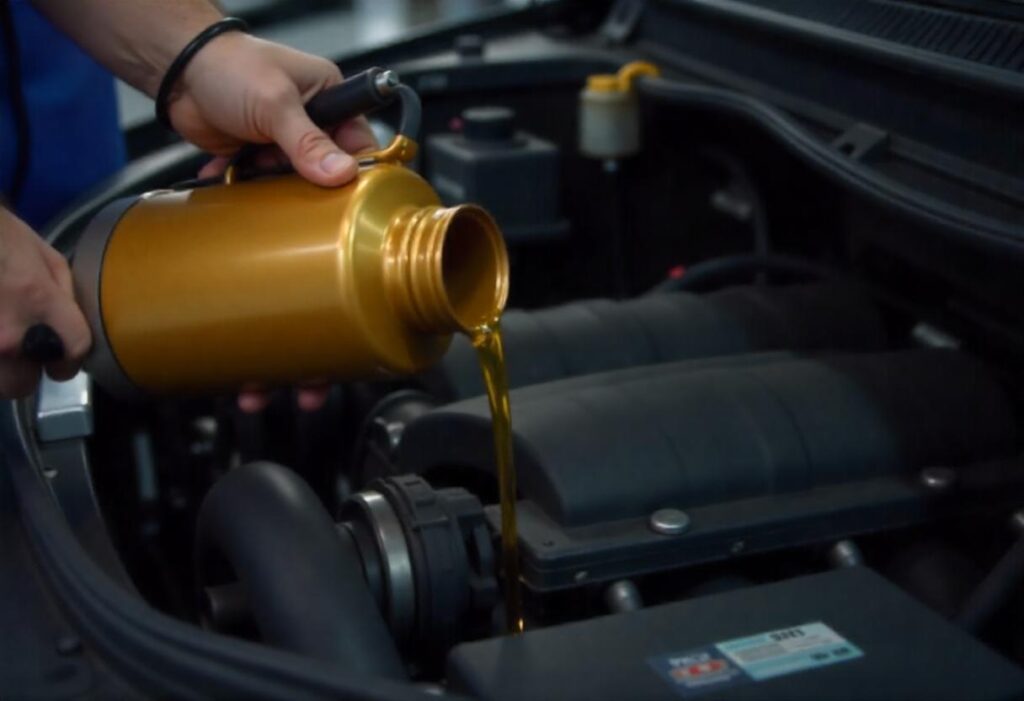Introduction
An engine oil change is more than just a routine task—it’s a key step in maintaining your car’s performance and extending its lifespan. However, doing it right requires more than just swapping out the oil. In this article, we’ll share the best engine oil change tips to ensure optimal performance and longevity for your vehicle. From choosing the right oil to avoiding common mistakes, these expert tips will help you get the most out of every oil change.
Why Engine Oil Changes Are Essential
Engine oil reduces friction, prevents overheating, and keeps your engine clean by suspending dirt and debris. Without regular changes, old oil can cause sludge buildup, increased wear, and even engine failure. A proper oil change can improve fuel efficiency by up to 2%, reduce emissions, and add years to your engine’s life.
Top 10 Engine Oil Change Tips for Optimal Performance
- Choose the Right Engine Oil
- Check your owner’s manual for the recommended viscosity (e.g., 5W-30) and type (conventional, synthetic, or blend).
- Tip: Synthetic oils (e.g., Mobil 1, Castrol EDGE) offer better protection and longer intervals—ideal for modern engines.
- Use a High-Quality Oil Filter
- A good filter traps contaminants without restricting oil flow. Brands like Fram, Bosch, or WIX are reliable choices.
- Tip: Replace the filter with every oil change to ensure clean oil circulation.
- Follow the Correct Oil Change Interval
- Most cars need an oil change every 5,000-10,000 miles, depending on the oil type and driving conditions.
- Tip: Use your car’s oil life monitor if equipped—it adjusts based on your driving habits.
- Warm Up the Engine Before Draining
- Run the engine for 2-3 minutes to warm the oil—it flows better and carries more debris out during draining.
- Tip: Don’t overheat the engine; warm oil is ideal, not hot.
- Drain the Oil Completely
- Let the oil drain for at least 5-10 minutes to ensure all old oil and sludge are removed.
- Tip: Tilt the car slightly (if safe) to help the last drops drain out.
- Check the Drain Plug and Washer
- Inspect the drain plug for stripped threads and replace the washer if worn to prevent leaks.
- Tip: Torque the plug to the manufacturer’s spec (e.g., 25-30 ft-lbs) to avoid overtightening.
- Lubricate the Oil Filter Gasket
- Rub a thin layer of new oil on the filter’s rubber gasket before installation to ensure a tight seal and easy removal next time.
- Tip: Hand-tighten the filter, then add ¾ turn with a wrench—don’t overtighten.
- Add the Correct Amount of Oil
- Overfilling or underfilling can harm your engine—check your manual for the exact capacity (e.g., 4.5 quarts).
- Tip: Add oil gradually, checking the dipstick to avoid overfilling.
- Monitor for Leaks After the Change
- After lowering the car, start the engine and look under it for drips from the drain plug or filter.
- Tip: Fix any leaks immediately to prevent oil loss and engine damage.
- Dispose of Used Oil Responsibly
- Take used oil to a recycling center or auto shop—many accept it for free.
- Tip: Store used oil in a sealed container to avoid spills during transport.
Benefits of Following These Tips
- Better Engine Performance: Clean oil reduces friction, improving power and efficiency.
- Longer Engine Life: Proper changes prevent wear, potentially adding 50,000+ miles to your engine’s life.
- Cost Savings: Avoiding mistakes reduces the risk of repairs (e.g., a damaged oil pan from overtightening).
Common Oil Change Mistakes to Avoid
- Using the Wrong Oil: Mismatched viscosity can reduce protection—always check your manual.
- Skipping the Filter Change: An old filter lets contaminants circulate, negating the benefits of new oil.
- Ignoring Leaks: Small drips can lead to major oil loss—address them immediately.
How to Choose the Best Engine Oil
- Viscosity: Match the grade to your climate (e.g., 5W-30 for cold weather, 10W-40 for hot).
- Type: Synthetic for high performance; conventional for budget-friendly options.
- Brand: Trusted names like Pennzoil, Valvoline, or Mobil 1 offer consistent quality.
Conclusion
Following the best engine oil change tips—like choosing the right oil, using a quality filter, and checking for leaks—ensures your engine performs at its peak and lasts longer. These practices save you money, improve fuel efficiency, and keep your car reliable. Make oil changes a priority, and your engine will thank you with years of smooth operation.
Call-to-Action:
What’s your favorite oil change tip? Share in the comments, and see our guide on oil change frequency!

